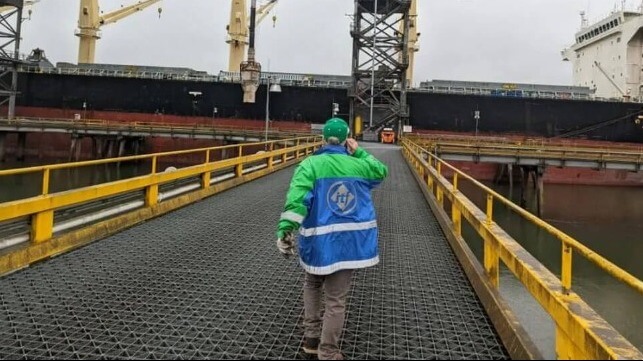Flag Administrators Denounce ITF’s Targeted Inspection Campaign

Days after the International Transport Workers’ Federation (ITF) announced it was launching a target inspection program in the Mediterranean aimed at safety, maintenance, and seafarer welfare issues, the four flags cited by the union are all responding calling the accusations false and untrue, and not representative of the efforts undertaken by the flags. They cite inaccuracies in the union’s statements and the flags’ ongoing efforts to resolve issues and enforce standards.
“The ITF’s campaign does not reflect the reality of the situation regarding PISR,” responds the Palau International Ship Registry (PISR), one of the four cited by the union. The ITF said that it would be targeting up to 1,000 ship inspections for vessels operating in the Mediterranean in the coming eight weeks. They listed Palau along with ships flagged to the Cook Islands, Sierra Leone, and Togo as the targets saying that ships from these flags had over 5,200 deficiencies or detentions issued by European Port State Control enforcement agencies, as listed by the Paris MOU between 2020 and 2022.
“The statistical evidence presented by ITF to justify its unwarranted attack on PISR is wholly inaccurate, misinterpreted, and therefore clearly misleading. The negative picture presented of PISR is misguided, as any objective observer with maritime knowledge will understand,” the flag administrator wrote in its response. They are calling into question the rationale behind the campaign.
PISR reports that in the past three years, only two vessels in its registry were sent for demolition from the Mediterranean. Neither of these vessels they state recorded unsafe shipping issues or abandonment cases.
Further, like all the flag administrators, PISR responds to and takes seriously any case of abandonment reported to the administrator. The flags point out that the financial issues that drive most shipowners to abandon a crew or ship are beyond their control, but they respond to their responsibilities under the Maritime Labor Convention.
“PISR has taken immediate action to address all cases brought to the Flag administration to benefit seafarers’ rights under the MLC,” they write noting as recorded in the International Labour Organization’s official abandonment database, PISR swiftly addressed and officially resolved all abandonment issues.
The flags also refute the broader accusation that the ships operating under these flags account for numerous detentions and deficiencies. PISR says as per the last Paris MoU report, it only had nine detentions out of 162 inspections in the last five years.
“No other flag state has improved its standing within the Paris Memorandum of Understanding (Paris MoU) in the last five years. PISR for consecutive years has been in the top third tier of the Grey List in both Paris MoU and Tokyo MoU.”
The flags report they have been working with the international community with PISR noting that its vetting process, for example, which includes looking into the vessel’s age, ownership, and past performance history, has been audited by international bodies, including the IMO during IMSAS audits.
PISR notes it applies a strict vetting process for vessel acceptance. Similarly, the International Ship Registry of Togo in its response to Tradewinds cited the number of ship registration requests it rejects. They told Tradewinds they turned down 148 vessels last year and since 2020 more than 200 ships have been deregistered.
The flags all responded citing their disappointment in the ITF’s efforts. The union has frequently targeted flags of convenience in its campaigns. The administrators targeted in this latest effort believe it would be more constructive to work with the flags in their efforts to improve the situations for seafarers.
